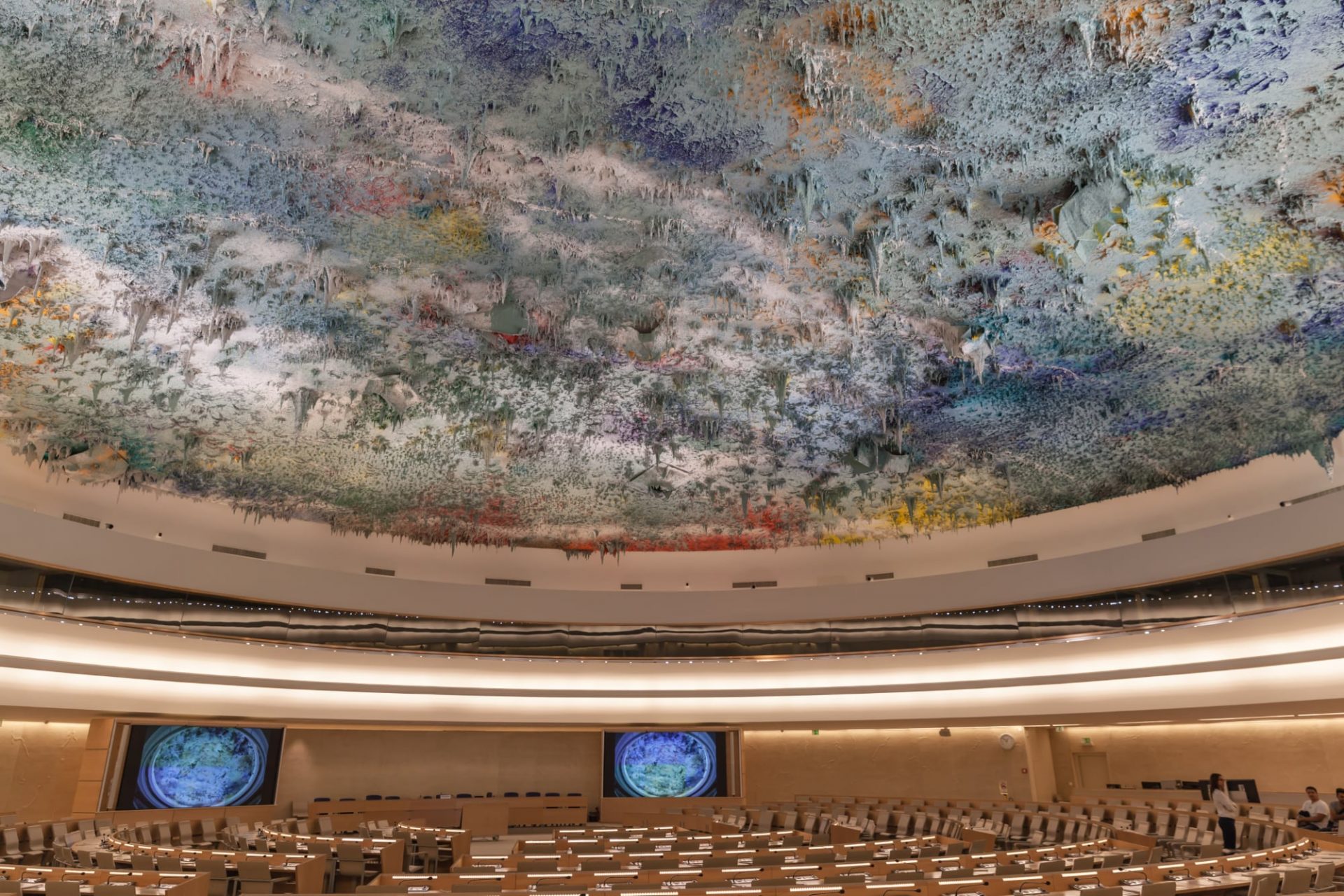Human Rights Council
The Human Rights Council (HRC) was appointed by the UN General Assembly to replace the Commission on Human Rights in 2006, and is the part of the UN system that is responsible for the strengthening, promotion, and protection of human rights worldwide.
Three times a year, in March, June, and September, the HRC meets for 3-4 weeks in Geneva, Switzerland to review the status of human rights in countries around the world, to address human rights violations, and to make recommendations to improve the fulfilment of human rights.
All 193 UN Member States, UN ‘Permanent Observers’, and civil society may attend these regular sessions, but only the 47 States that are elected to be members of the HRC at any one time may ‘table’ (propose) resolutions and vote to adopt them. These resolutions serve as a guidance for the international community on how to tackle human rights issues, can contribute to greater international awareness of human rights problems, can increase international support for policy and legal change, can result in the creation of a new Special Procedures mandate (e.g. a new Special Rapporteur), and can increase the pressure on States to implement concrete policy or legal reforms.
Council members are elected to staggered three-year terms, with seats allocated geographically with each region nominating candidate countries that are then approved by the General Assembly. The Council may also meet for additional ‘special sessions’ if an urgent human rights situation arises.
Our Statements:
- UN Human Rights Experts Raise “Serious Concern” About China’s Assimilation Policies and Residential Schools in Tibet
 78% of Tibetan students aged 6 to 18 separated from their families and forced into China’s colonial boarding school system in Tibet UN human rights experts have raised urgent concern about China’s residential [1] schools in Tibet, which are part of a… Read More »UN Human Rights Experts Raise “Serious Concern” About China’s Assimilation Policies and Residential Schools in Tibet
78% of Tibetan students aged 6 to 18 separated from their families and forced into China’s colonial boarding school system in Tibet UN human rights experts have raised urgent concern about China’s residential [1] schools in Tibet, which are part of a… Read More »UN Human Rights Experts Raise “Serious Concern” About China’s Assimilation Policies and Residential Schools in Tibet - 230 Rights Groups Demand Resignation of UN High Commissioner for Human RightsActivists slam Michelle Bachelet’s six-day visit for whitewashing repression against Uyghurs, Tibetans, Southern Mongolians, Hong Kongers and others 8 June 2022 We, 230 Uyghur, Tibetan, Southern Mongolian, Hong Kong, and Chinese democracy and international human rights advocacy groups, call for the immediate… Read More »230 Rights Groups Demand Resignation of UN High Commissioner for Human Rights
- HRC 44th Session: TAC Delivers Oral Statement on COVID-19 Crackdown in Tibet
 10 July, 2020 – Tenzin Jigdal, from the International Tibet Network, speaking on Tibet for The Nonviolent Radical Transnational and Transparty Party, Interactive Dialogue with: – the Special Rapporteur on the promotion and protection of the right to freedom of opinion and… Read More »HRC 44th Session: TAC Delivers Oral Statement on COVID-19 Crackdown in Tibet
10 July, 2020 – Tenzin Jigdal, from the International Tibet Network, speaking on Tibet for The Nonviolent Radical Transnational and Transparty Party, Interactive Dialogue with: – the Special Rapporteur on the promotion and protection of the right to freedom of opinion and… Read More »HRC 44th Session: TAC Delivers Oral Statement on COVID-19 Crackdown in Tibet - HRC 44th Session: Item 3 Statement Delivered on Tibetan Environmental Defenders
 10 July 2020 – The following is the statement delivered at the 44th session of the HRC in Geneva, by TAC Coordinator Gloria Montgomery. Item 3: Interactive Dialogue – Report of the Special Rapporteur on the rights to freedom of peaceful assembly… Read More »HRC 44th Session: Item 3 Statement Delivered on Tibetan Environmental Defenders
10 July 2020 – The following is the statement delivered at the 44th session of the HRC in Geneva, by TAC Coordinator Gloria Montgomery. Item 3: Interactive Dialogue – Report of the Special Rapporteur on the rights to freedom of peaceful assembly… Read More »HRC 44th Session: Item 3 Statement Delivered on Tibetan Environmental Defenders
